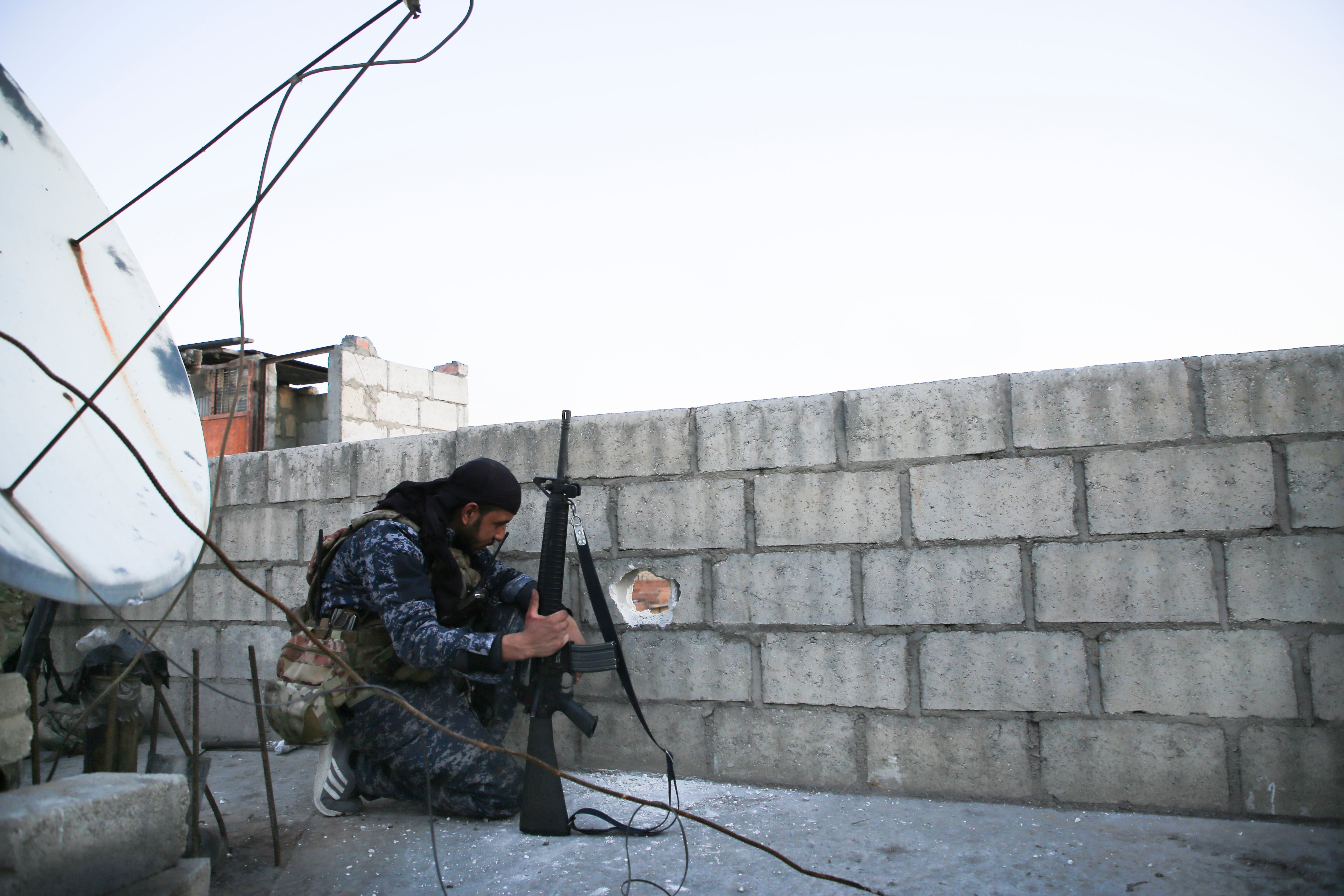UNICEF team visits children in Syria prison after IS attack
The U.N. children's agency says officials from the group have visited a prison in northeast Syria that witnessed 10 days of fighting between U.S.-backed fighters and Islamic State group militants

Your support helps us to tell the story
From reproductive rights to climate change to Big Tech, The Independent is on the ground when the story is developing. Whether it's investigating the financials of Elon Musk's pro-Trump PAC or producing our latest documentary, 'The A Word', which shines a light on the American women fighting for reproductive rights, we know how important it is to parse out the facts from the messaging.
At such a critical moment in US history, we need reporters on the ground. Your donation allows us to keep sending journalists to speak to both sides of the story.
The Independent is trusted by Americans across the entire political spectrum. And unlike many other quality news outlets, we choose not to lock Americans out of our reporting and analysis with paywalls. We believe quality journalism should be available to everyone, paid for by those who can afford it.
Your support makes all the difference.Officials from the U.N. children’s agency visited a prison in northeast Syria that witnessed 10 days of fighting between U.S.-backed fighters and Islamic State group militants, the agency said Sunday.
The UNICEF team said after visiting some children at the prison in the city of Hassakeh on Saturday that they have lived in dire conditions at the detention center for years and in January “witnessed and survived heightened violence” in and around the prison.
The visit came two days after IS’s top leader, Abu Ibrahim al-Hashimi al-Qurayshi was killed in a U.S. raid on his safehouse in northwest Syria. President Joe Biden said al-Qurayshi had been responsible for the Syria prison assault.
Over 3,000 inmates, of which some 600 are children, are held at the Hassakeh prison, known as Gweiran or al-Sinaa.
“Despite some of the basic services now in place, the situation of these children is incredibly precarious,” Bo Viktor Nylund, UNICEF's Syria representative, said in the statement.
While boys were held separately from adults, the groups mixed when IS militants stormed the prison in a jailbreak on Jan. 20. Some inmates escaped, while others including child detainees were taken hostage in the ensuing battle.
“Children should never have been there in the first place,” Nylund said, adding that UNICEF is working to provide safety and care for them while calling on all stakeholders to urgently find long-term solutions in the best interests of the children.
He said UNICEF is ready to help support a new safe place in Syria’s northeast to take care of the most vulnerable children, some of whom are as young as 12.
At a press conference on Jan. 31, the U.S.-backed and Kurdish-led Syrian Democratic Forces said they had retaken control of the prison and confirmed that 77 prison employees, 40 Kurdish fighters and four civilians were killed, alongside 374 IS detainees and attackers.
The SDF provided no breakdown of the dead detainees, or how many of them were children.
Nylund said destruction in the surrounding area of the prison is significant with destroyed homes affecting an estimated 30,000 people. He said every effort, including by the Syrian government and local authorities, to provide immediate assistance should be supported.
“Children should never be in detention due to association with armed groups,” Nylund said. “Children associated with and recruited by armed groups should always be treated as victims of conflict.”
He said UNICEF calls for the immediate release of children in all detention centers across northeast Syria and for handing them over to child protection agencies. He said UNICEF calls on member states of foreign children to repatriate them.
For years, some countries have refused to repatriate detained children in Syria while Kurdish authorities have expressed concern they may have extremist tendencies.
“UNICEF stands ready to facilitate the speedy and systematic repatriation of foreign children and the reintegration of children in Syria to their communities of origin,” Nylund said. He added that the pace of repatriation and integration of children stranded in Syria “is far too slow. This is unacceptable.”
On Friday, Human Rights Watch said hundreds of boys are missing from the fighting in and around the prison.